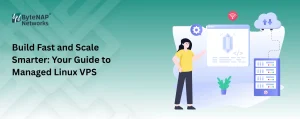If you are owning a VPS server or planning to buy one, then this article ‘Best Ways To Secure Your VPS, Windows & Linux VPS Server’ for you.
You might now that if you are hosting a website, then Secure Your VPS is a critical element. It is your liability to maintain the website as it works 24/7. Despite your VPS hosting provider guaranteeing to make your site safe, but you should make sure that everything is protected. Read, Managed vs Unmanaged VPS Hosting.
So now let’s discuss some tips to Secure Your VPS
Tips for protecting both cPanel and Plesk:
Use Long Password:
The usual faith of having a strong password is including special alphanumeric characters. However, this isn’t enough as the software will easily calculate such passwords. So a password should be long enough to make it reliable.
Patch your software:
Both Plesk and cPanel deliver utilities that update software at any moment through SSH and its web interface. Latest performance patches and security fixes to ensure a more secure server and saves from botnet spam.
Security Advisor:
Security Advisor tool is included in both cPanel and Plesk that delivers you excellent security. The use of extra-powerful tools, encrypting SSL certificate and checking the regular server updates.
Necessary Tips for cPanel are:
Simpler Your Website Management Using cPanel. Read, 5 Simple cPanel Tips In Detail.
CSF (ConfigServer Firewall)
CSF is an excellent addon for your cPanel servers that simplify the administrative work of your firewall. It helps in managing tasks such as brute force protection, whitelisting server-wide, and IP blocking. Also, the support team will help in solving queries.
CPHulk
CPHulk is a security tool that incorporates cPanel and secures all vital system services such as email, WHM, cPanel, and SSH.
Necessary Tips for Plesk are :
Fail2Ban
To monitor log files for a system like an email, SSH, Logins, Plesk. Etc. You can install Fail2Ban addon on your Plesk to keep your clients secure.
Keep Things Updated
The updates are needed to be done manually in Plesk. Whenever you log in Plesk, will notify you about available updates. The manual updation is required to be done daily to guarantee that you have the latest security patches. Plesk incorporates a great update tool. Also, you can operate the Plesk installer over SSH.
Now we will see how to Secure Your VPS, Linux VPS, and Windows VPS.
Tips to Secure Your VPS
The power and flexibility of Linux are supreme. However, attackers exploit the loopholes and attack them.
While login into server always use SSH
The safest way to login to the server is by using SSH. SSH provides topmost level encryption. It helps in directing secure connections and running graphics applications remotely.
Deactivation of Root Account
You should use pseudo access instead of root access, and it is necessary to disable the root login option.
Individual accounts for all users and services on your Linux VPS should be created. However, provide only necessary privileges and permission to avoid harm on overall security. Additionally, you should deactivate such user accounts, which further don’t require any access.
Download software only from reliable sources
One must download software only from reliable or known sources. Else it could be a threat for Linux VPS.
Avoid Unnecessary Services
Owning a VPS server will enable you to use several services. However, it is advisable to use only the required services. As the third party provides the services, there might be a chance for services to carry a threat to your server. So one must check active services.
Configure Permission Settings
With more general settings, the interaction of users with your website becomes easier. However, with a security point of view, it increases the chance of threats. To encounter this, you need to create sufficient defaults. Limited File permissions should be better for complete Linux VPS security.
Tips to protect Windows VPS
Intrusion Detection System
IDS works like an alarm for your Windows VPS by keeping track of your files and alerts whenever the data is altered or changed. IDS is used to protect from threats created by hackers that try to replace binary applications.
Use Bastion Host
Bastion Host is a computer specially designed to stand against attacks. It minimizes the chance of penetration by limiting direct access to your server from a public network.
Server Drive Encryption with BitLocker
Enabling BitLocker for server drive encryption provides security to your data. It also protects from attacks by providing an extra layer of protection. Additionally, administrative rights are required to perform any action.
Alternate Ports usage
Default ports are used in services such as RDP, SQL Server used to break into your server. Therefore you should change ports regularly to prevent such attacks. Additionally, it blocks a port from some time.
Remove Unwanted Protocols
Analyze the services running on your server and disable all the unnecessary services to reduce your threat attacks. To find where and how messages are transferred, you can use port binding. Hence will help you keep track of unusual activities on your server.
Conclusion
Whenever a business is set up, online security is a necessity. Also read why .online domain is perfect for your business. Its an invitation for hackers whenever the server is left open. Secure Your VPS to protect the private information of users. All the tips mentioned above and ByteNAP VPS Hosting will help in securing from VPS attacks and problems.








